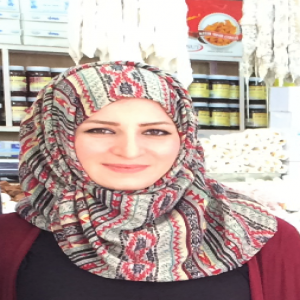البحوث العلمية
2020
KURDISH STUDENTS’ ATTITUDES TOWARDS THE USE OF FILMS IN TEACHING LITERARY WORKS IN EFL CLASSROOM
2020-05
JEELS (Journal of English Education and Linguistics Studies) (القضية : 1) (الحجم : 7)
The current study investigates Kurdish students’ attitudes towards the use of films in teaching literary works at universities in the Kurdistan Region of Iraq. The study also highlights whether using films in teaching literary works is beneficial or not and what challenges are faced by them. The data were collected by using questionnaires and interviews from 60 students aged between 18-24 years old from both private and public universities. Out of 60 students, 15 were randomly chosen to be interviewed. Results show that some students consider teaching literary works using films is beneficial, as it encourages students to study and read more literary works and it also makes them actively interact with the content which helps them remember the events more effectively. However, the study also reveals that some Kurdish students consider teaching literary works using films is a waste of time, and this discourages interaction between students and their teacher. In addition, ‘boredom’ and ‘language difficulty’ are the other two major challenges faced by Kurdish students.
2019
A Critical Analysis and Comparison of two Published Academic Journals in Education Field
2019-12
Humanities Journal of University of Zakho (hjuoz) (القضية : 4) (الحجم : 7)
The purpose of this study is to critically analyse and evaluate two selected journal articles. The two articles are research papers in the education field; more specifically both journals are about the usage and implementation of Communicative Language Teaching. For ease of reading, each article is dealt with separately. This paper is to pinpoint their weaknesses and strengths. The two chosen papers are also critiqued from various perspectives such as methods of data collection and analysis, research layout and organization, validity and reliability of the data collected, sampling issue and ethical considerations. Although the titles are very similar, the content was different and the papers are written differently using various instruments for collecting data. This study concluded that both articles to some extent have week points such as the use of instruments and the sampling size which were a very limited size, especially in article Y. The ethical issues in both articles to some extent are considered, however, in one of the articles, it is less taken into account.
2015
KURDISH STUDENTS’PERCEPTIONS TOWARD COMMUNICATIVE LANGUAGE TEACHING AT A UNIVERSITY IN KURDISTAN REGION IRAQ
2015-11
European Scientific Journal (القضية : 10) (الحجم : 11)
This is a small scale piece of research that has been conducted to investigate the Kurdish students’ perceptions of CLT in Kurdistan. The samples involved in this study were 40 Kurdish undergraduate students; 6 out of these 40s were interviewed via Skype. The participants were chosen based on their knowledge regarding CLT. These students have been taught the CLT principles for one year and for almost three years they have been taught through CLT. This study was collected by a mixture of qualitative and quantitative data by using a set of questionnaires and semi-structured interviews. This was done in order to find the answer to three research questions which are:(1) what are students’ attitudes toward CLT? (2) Do students think that authentic materials should be used by teachers in English classes? (3) What are the challenges that Kurdish students face when they are taught through the CLT method? The findings of the study revealed that students have a positive attitude regarding the use of CLT, as it contributed much to the real world language. Moreover, the results showed that the students are in favour of the use of authentic materials because they are more interesting than other materials. However, some challenges might face the teachers and the students while implementing CLT in Kurdistan contexts, such as lack of authentic materials, lack of teachers’ knowledge, grammar-based exams and students’ proficiency level. Therefore, the findings also revealed that these difficulties can be tackled and by that this approach will work more properly in Kurdistan.
الرجوع
